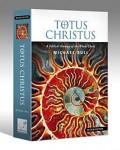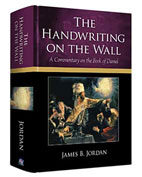Apr
8
2009
I get through more Bible in one scripture lesson with non-Christian high school kids than many church congregations get in 6 months. Why have we dumbed church down so much?
“A young man, who never really wanted to graduate from high school himself, gets hired as a youth minister. His task is to put together a wild and crazy time down at the church, with perhaps a little inspirational message attached. The driving assumption is that young people today will not tolerate serious instruction and discipleship, and so we must give them large amounts of what they do want, which is “fun, fun, fun, till her daddy takes the T-bird away.” The problem here is not that the kids in the high school group get together, but rather that we have assumed that their time together should consist largely of froth and vanity. As these children grow up, we find that they are unaccustomed to any kind of serious, sustained worship, and so the pressure mounts to make the worship service more and more like the youth group used to be. Because we have tolerated and encouraged the dumbing down of the faith amoung young people, we discover over time, as they grow up, that it stays dumbed down.”
Doug Wilson, Mother Kirk, p. 220. Available from www.canonpress.org
Comments Off | tags: Devotion, Doug Wilson | posted in Biblical Theology
Apr
8
2009
Christians buy books to tell them what’s in the Bible. Why this need? What are they hearing at church?
I teach the Bible in a public high school. It’s not just “Scripture lessons.” We actually let the Bible stand on its own. We get through more Bible in one week in a class of un-churched teenagers than many local churches get in months. Why is this?
Christians aren’t dumb. Are we starving the sheep because we are afraid of offending outsiders? We need churches that teach all of the Bible to all of the people. It really isn’t that hard. People are so hungry for it that Hollywood has filled the gap. The Bible isn’t much more complex than a long-running prime-time show if we spend the time on it. But most Christians don’t even have a basic framework so they get sucked into subtle heresy like The Shack. Church is so dumbed down.
The Bible only seems irrelevant because we don’t teach it. When we actually teach its narratives (and not just systematic theology), it creates its own relevance.
The narratives themselves (obviously with some helpful exposition) communicate the systematics in context, memorably, and very powerfully.
I love watching my students put the pieces together. Just teach the Book and watch people change. As we teach it, they learn how to read it, and then interpret the world by it.
Comments Off | posted in Biblical Theology
Apr
8
2009
The golden Lampstand, with seven flames, corresponds to the sun, moon and five planets (those visible to the naked eye) that govern the firmament. These are the seven “eagle-eyes” of God. The Lampstand was a stylised almond tree. In Hebrew, the word translated “almond” is also the word for “watcher, overseer.” An almond tree is a shepherd who grows out of the earth and reaches heaven–a Tree of Life.
Stephen defended himself with a speech recounting the history of Israel, culminating in their murder of prophets before the exile.
“You stiff-necked people, uncircumcised in heart and ears, you always resist the Holy Spirit. As your fathers did, so do you. Which of the prophets did your fathers not persecute? And they killed those who announced beforehand the coming of the Righteous One, whom you have now betrayed and murdered, you who received the law as delivered by angels and did not keep it.” (Acts 7:51-53)
 They would be exiled, like their fathers, but into outer darkness grinding their teeth in agony (Matthew 8:12). They were already grinding their teeth, but against Stephen. He saw the heavenly veil opened and Jesus standing at the right hand of God, the Watcher Tree, the Lampstand, measuring the first martyr of the New Covenant Table of Showbread. Like Jesus, Stephen was ejected from the city and executed. Like Jesus, he asked the Lord to receive his spirit, and prayed for forgiveness for his murderers. He was “one like the Son of Man.”
They would be exiled, like their fathers, but into outer darkness grinding their teeth in agony (Matthew 8:12). They were already grinding their teeth, but against Stephen. He saw the heavenly veil opened and Jesus standing at the right hand of God, the Watcher Tree, the Lampstand, measuring the first martyr of the New Covenant Table of Showbread. Like Jesus, Stephen was ejected from the city and executed. Like Jesus, he asked the Lord to receive his spirit, and prayed for forgiveness for his murderers. He was “one like the Son of Man.”
Continue reading
Comments Off | tags: Elijah, Lampstand, Stephen | posted in Biblical Theology, Totus Christus
Apr
8
2009
“…Here we see the third Babylon in all its horror. Both city (Nimrod: Herod + Pilate-Caesar) and tower (priests and Jews) join in putting Jesus to death. Together, they intend that their city and tower will endure, no matter what the God of Heaven says or does. Judgment comes, however. As God came  down on the first two Babylons, the Spirit comes down at Pentecost. Immediately there is a confusion of tongues. Jews of every nation hear the gospel in every language except Hebrew-Aramaic. This time, however, instead of a scattering of lips (religions), there is a unification of lips around the praise of the Father of Jesus Christ. As we shall see below, however, there is another sense in which there is a scattering of different “lips.” The “gift of tongues” continues on and off throughout the Apostolic Age until Jerusalem (the whole circumcision) is destroyed in the destruction of Mystery Babylon in ad 70. The Jews are brought into consternation (1 Corinthians 14:21–22; compare Acts 18:7). Continue reading
down on the first two Babylons, the Spirit comes down at Pentecost. Immediately there is a confusion of tongues. Jews of every nation hear the gospel in every language except Hebrew-Aramaic. This time, however, instead of a scattering of lips (religions), there is a unification of lips around the praise of the Father of Jesus Christ. As we shall see below, however, there is another sense in which there is a scattering of different “lips.” The “gift of tongues” continues on and off throughout the Apostolic Age until Jerusalem (the whole circumcision) is destroyed in the destruction of Mystery Babylon in ad 70. The Jews are brought into consternation (1 Corinthians 14:21–22; compare Acts 18:7). Continue reading
Comments Off | tags: Babel, baby, hero, Pilate, Tongues | posted in Biblical Theology, The Last Days
Apr
8
2009
“God’s creation of Israel was like his creation of the world. The cosmos has an order that will someday be undone. Israel had an order that was undone. And so the un-creation of Israel is sometimes described in the analogous cosmic terms.
Jeremiah was the prophet on duty when Jerusalem fell to the Babylonians and the temple was destroyed. Israel was de-created. No more son of David on the throne. No more temple in Jerusalem. No more people in the land. Jeremiah describes this coming cataclysm in terms of cosmic creation: 4:23 “I looked upon the earth and behold it was formless and void; and to the heavens, and they had no light.”
Jeremiah is not the only prophet to talk like this. And unless we understand that this is part of the prophetic vocabulary, we will come to the book of Revelation and read about stars falling from heaven and other cosmic disasters, and we will not immediately think, “Oh, so Jerusalem and the temple are going to be destroyed and the people removed from the land again. Ah.”
(This is not a new thought here, at all. But American evangelicals have a very persistent misunderstanding in this matter.)”
Keith Ghormley, http://presbyteer.blogspot.com
Comments Off | tags: Creation Week, Eschatology, Jeremiah | posted in Biblical Theology, Quotes, The Last Days
Apr
8
2009
Ezekiel shared his vision with the exiled rulers as a warning. As they saw the Lord’s destruction of the old Jerusalem, they would purify themselves in anticipation of the new Jerusalem promised to them by God (1 John 3:3).
The book of Revelation has the same purpose. Most of the seven churches already contained the seeds of their own destruction—abating love, beasts (false kings), false prophets and spiritual prostitutes. The small judgments Jesus brought in these letters prefigure the major judgments in the letter to the “eighth church,” old Jerusalem, who was in bondage with her children (Galatians 4:24-25).1 The new army of God (the seven churches) saw the bodies of the old mighty men (Judah) fall in the wilderness (Hebrews 3:12-18).
_________________
1 Amos follows the same pattern, dealing with seven nations (including Judah) before he gets to the point and prophesies against Israel, the eighth, to demonstrate that God’s judgment is not biased.
Comments Off | tags: Ezekiel, Revelation, Totus Christus | posted in The Last Days
Apr
8
2009
The book of Daniel begins with the captured vessels from Solomon’s Temple being carried off to Babylon. We assume the ark, with its solid gold lid, was melted down. The golden lampstand, however, shows up at Belshazzar’s feast just before the fall of Babylon to Persia. Cyrus decrees that the Jews can return and rebuild the Temple. They carry the vessels, minus the Ark, across the Great River Euphrates.
Zechariah later sees a flying scroll with the dimensions of the Tabernacle (10 x 20 cubits). These are also the dimensions of the Ark plus cherubim in Solomon’s Temple. The Ark had been offered as an ascension and created a new heaven – unrolled a new scroll. The Restoration Covenant cost the Ark its “life.”
Now to Acts. The human Ark, Jesus, had ascended to heaven and left the “seven churches”, the New Covenant Lampstands with tongues of fire, to rule and conquer Babylon (Jerusalem). The church did so, and we see the firstfruits church army, the “kings from the sunrising” crossing the Great River in Revelation 16, entering a new earth like Joshua over Jordan.
Comments Off | tags: Ark of the Covenant, Babylon, Daniel, Exile, Lampstand, Revelation, Stephen, Tabernacle, Temple, Zechariah | posted in Biblical Theology, The Last Days
Apr
8
2009
The Bible is a complex book. Consisting of sixty-six books written over several millennia, it describes a bewildering array of characters and events. The Bible seems especially complex and difficult to modern Christians, because, however hard we try to think biblically, we have been subtly but deeply influenced by modern philosophy and science. Often, even when we have rejected the explicit conclusions of science, we unconsciously adopt a scientistic mind-set. One example of this is our tendency to operate on the modern assumption that all ideas can be defined with infinite, scientific precision, and that concepts can and should be distinguished very sharply.
The more you study the Bible, the more you will find that it cannot be forced into this mold. Ideas and symbols in the Bible meld together, overlap, and stretch out in a thousand different directions. This is not to say that the Bible is irrational or unscientific, or that we cannot make any meaningful distinctions. But a modern reader cannot escape the sense that the Bible speaks a very different language than he learned in “Chem. Lab” or Philosophy 101. As theologian Vern S. Poythress has noted, the biblical world view acknowledges the reality of “fuzzy boundaries.”
–Peter Leithart, The Kingdom and the Power, p. 93.
Comments Off | tags: Peter Leithart | posted in Biblical Theology
Apr
8
2009
“When they persecute you in this city, flee to another. For assuredly, I say to you,you will not have gone through the cities of Israel before the Son of Man comes.” (Matthew 10:23)
“One of the most important lessons any Christian reader of the Old Testament must learn in order to truly understand its message is its connection to the New Testament. Jesus himself said that the whole Old Testament looked forward to his coming suffering and glorification (Luke 24:25-27, 44-48), but it is surprising how many ignore this crucial principle of interpretation.”
Tremper Longman III, Robert H. Gundry Professor of Religious Studies at Westmont College, author of Making Sense of the Old Testament
Comments Off | posted in Quotes, The Last Days
Apr
8
2009
or The Knowledge of Good and Evil is Always a Two-Edged Sword

“Nobody has the power to bless or be blessed who has lost the vigor to curse. Our society is so polite that it cannot curse social evils and prefers to blaspheme God instead.”
- Eugen Rosenstock-Huessy
Judgment is not destruction. Judgment is assessment. For every beast rejected and sent to outer darkness, there is a redeemed beast that ascends to God. AD70 was the ultimate Yom Kippur, the outworking of the cross. Passover always leads to the Day of Atonement, the Day of the Lord when the flaming sword turns to and fro.
Comments Off | tags: Atonement, Eugen Rosenstock-Huessy | posted in Biblical Theology




























